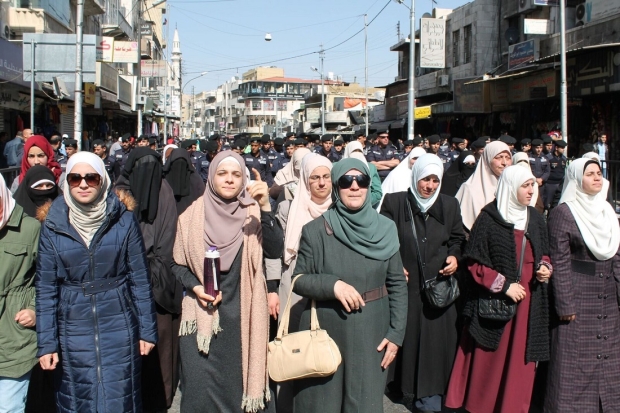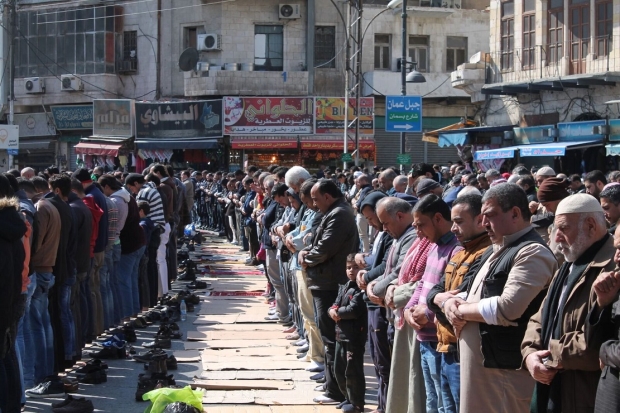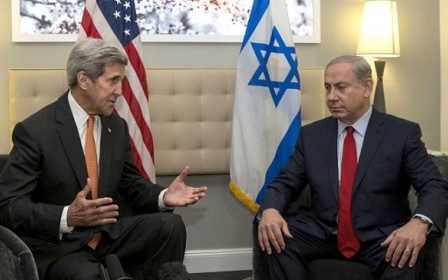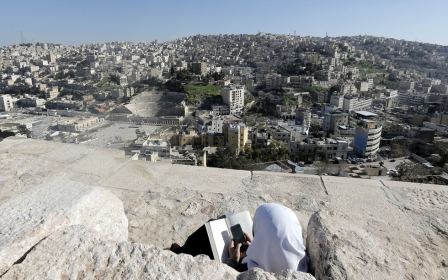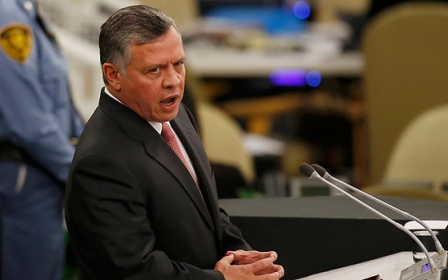Jordan austerity: Despite rising prices and anger, protests limited
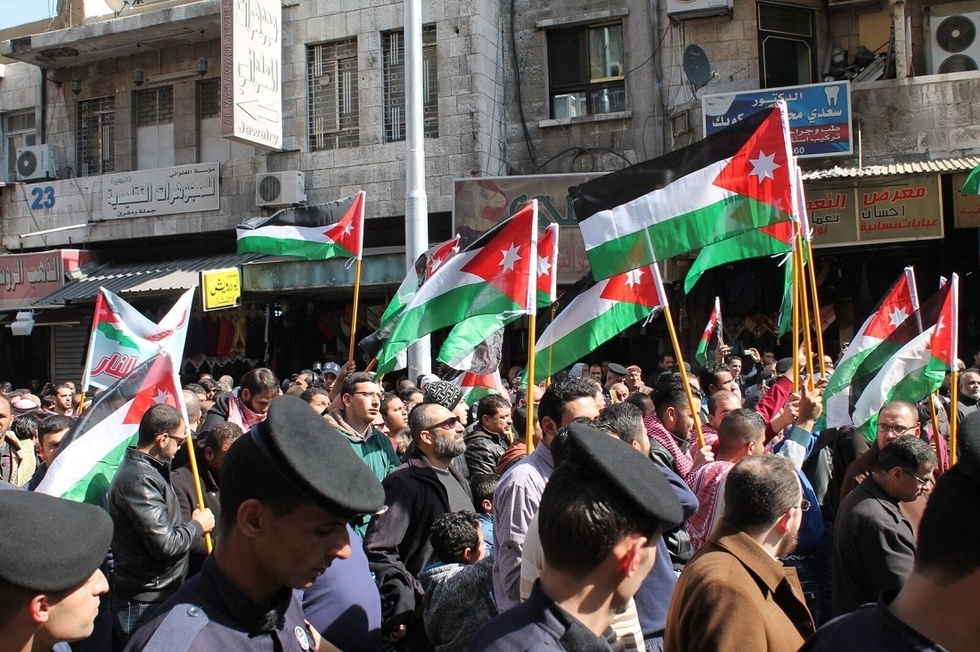
A Friday protest in the centre of the Jordanian capital, Amman, against recent tax and price increases has been described by some organisers as the culmination of a week of growing demonstrations moving up the country from the tribal heartlands.
Perhaps 1,000 men walked through a short stretch of Amman's old centre, followed by 40 or so women and a phalanx of blue-boiler suited gendarmerie.
The call and response of rally leaders, including the Islamic Action Front - the government-approved faction of the Muslim Brotherhood - demanded the fall of the government and heaped shame on leaders for the state of the country.
"Shame on the government," urged one chant. Another specifically named Prime Minister Hani Mulki, who has made many of the tough financial cuts previous governments had deferred, and called for his downfall and that of his entire cabinet. "Where is the safety and security?" asked another verse of call and response.
Friday's demonstrators were protesting against a series of price increases made earlier this month when the cash-strapped government rolled back subsidies, under pressure from the International Monetary Fund (IMF). Jordan's debt-to-GDP ratio is more than 93 percent, and the country's leaders have vowed to raise JD 450m ($634m) in 2017 to offset the deficit.
The cost of petrol has increased by 8 percent; bus and taxi fares have also jumped. Taxes on internet services have doubled from eight to 16 percent. The cost of cigarettes and fizzy drinks has spiralled, as has that of an assortment of basic groceries.
While the minimum wage for Jordanians has increased from JD 190 ($268) to JD 220 ($310) per month, too many families here say it is simply impossible to survive on such incomes. A litre of UHT milk costs at least JD 1.40 (almost $2), and a 500-gram bag of dried lentils sets shoppers back JD 1.20 (about a $1.70). Rice, fresh vegetables, meat and medicines are oddly expensive for a country with such high levels of poverty.
While the Ministry of Finance said the latest measures "will not affect the limited- and middle-income brackets of society," people from those brackets attended Friday's march, telling MEE that they had indeed been hit by the rising cost of living.
"It has been so bad for a long time, but now, with the new government, it's over," said Hind Azizi, a 24-year-old marching in the small contingent of women who followed the men down King Talal Street.
"The cost of internet, sugar, everything has been raised. All the essentials," she said.
Azizi is a newlywed. In her peer group, she said, men are marrying later and later. They first tend to spend an increasing number of years outside Jordan earning the money they need to start married life, but can't raise children here. Young men, who used to marry before 29, are now staying abroad well into their 30s, she added.
Another young man, walking past a reporter, offered his own take.
"We are five boys in our house, and mama and baba," he listed off on his fingers.
"After two days, 200 dinars is gone," he said, dashing his outstretched hands to the side. "We have jobs, but we have no money."
"Most people are crushed because salaries are fixed, but prices keep going up," said 57-year-old Zuhdi al-Mashni, a member of the Islamic Action Front who ran for office unsuccessfully in the last election. He said things in his home were OK, even with three wives to support, but that he was here for others.
"Maybe 90 percent of people are suffering, even the police and the gendarmerie," said Mashni, casting a glance at the blue-suited cordon bringing up the rear of the protest.
Economists say Mashni's figure of 90 percent probably isn't that far off, but to date nowhere near that number of people have taken to the streets.
Protests in the southern city of Karak a week ago brought hundreds of Jordanians into the streets with calls of shame on the government for the current financial woes. Subsequent protests in the cities of Tafilah, Salt and Madaba carried northwards a momentum that, unusually, included Jordanians from the East Bank tribes that have long been somewhat better off than the country's citizens with Palestinian roots.
In recent days, some observers have questioned whether Jordan is witnessing a return of the hirak, the grassroots protests that spiked during the Arab Spring unrest in 2011. But at Friday's march, headlined "Stop messing with the country’s future," momentum seemed to fizzle after perhaps an hour and just a few city blocks.
Leaving the demonstration, the mood was best summed up by spectator, who commented on the crowd, or lack thereof.
"Actually, most Jordanians are on a picnic today," the man said, shrugging and raising his hands in the midday sun. "It's nice weather."
Stay informed with MEE's newsletters
Sign up to get the latest alerts, insights and analysis, starting with Turkey Unpacked
Middle East Eye delivers independent and unrivalled coverage and analysis of the Middle East, North Africa and beyond. To learn more about republishing this content and the associated fees, please fill out this form. More about MEE can be found here.


